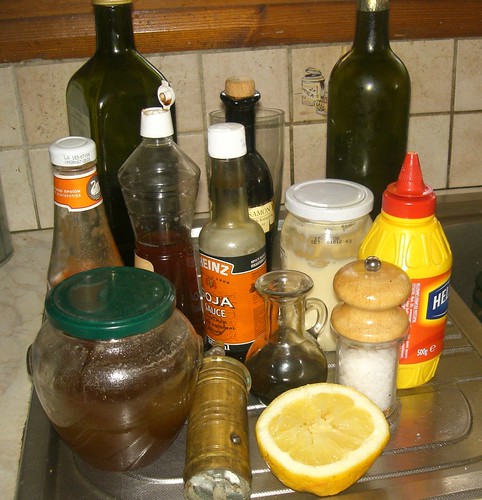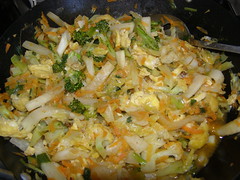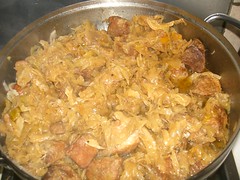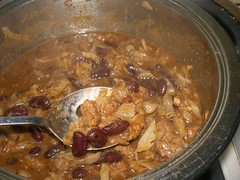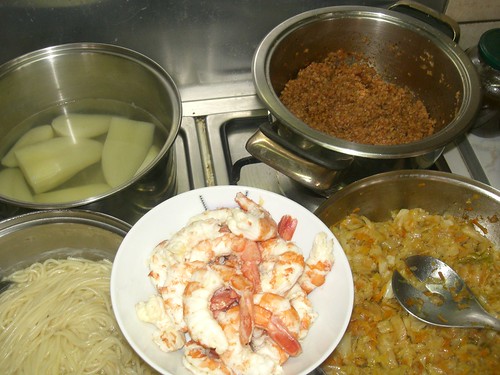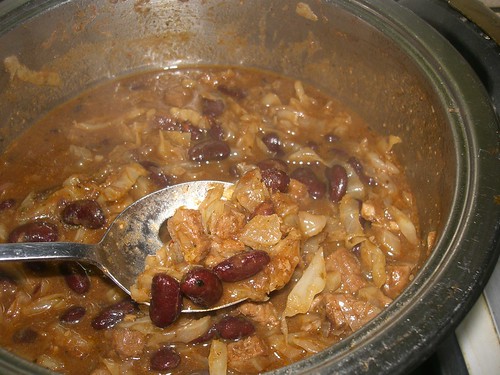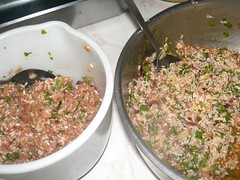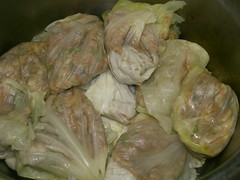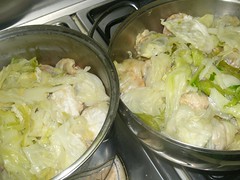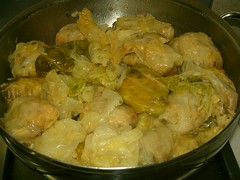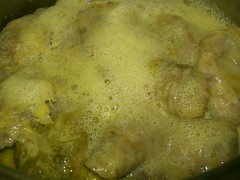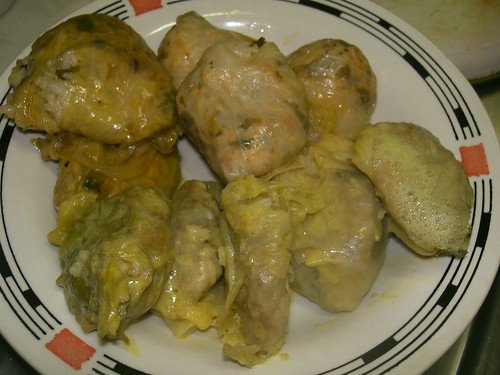Of all the places we visited during our trip through Northern Europe in April, Berlin was the most difficult place to write about, perhaps because its points of interest sometimes felt overwhelming.
We remember places we have visited in such a way that their image doesn't change over time, even though the place will have changed considerably. There were some things about Berlin that made an impression on me from a previous visit there. That's why, as soon as we arrived in Berlin on my more recent visit (last April), I wanted to visit the Gedachtniskriche, a bombed church standing as a testament of time, depicting the events that occurred during a single moment in the past. Alas, some things do not last forever; a church still wearing its WW2 ruins will only continue to erode without serious maintenance work. All we saw was a tall white tower of dirty square plastic panels covering the church, to protect it from pollution and climate change, awaiting its fate as renovation plans were being decided.
The train ride to the church did not go wasted. This was where we had our first currywurst, the famous Berlin street snack. Sausages are one food thing the Germans do really well.



The drab cover over the Gedachtniskriche represented a good deal of the Berlin that we saw during our brief stay. On arriving to the city, what surprised us about Schoenefeld Airport was that not only was it small, but it was also rather shabby. The stores were located
haphazardly, and had the appearance of badly maintained remnants of the
bygone communist era. Space was tight with few seating areas, so that
many people were milling about upright in the middle of the departure
lounge. It reminded me of ferry boat passengers at small Greek islands,
waiting anxiously for the only boat that would be coming in for the day
to take them away from a rather boring confined space. In terms of
political and economic standing, Berlin is one of continental Europe's
most important and influential cities, so this old-fashioned looking
airport did not seem a fitting tribute to Berlin's magnitude. I found
out later that a new airport would be opening in a month's time (or so the Germans thought, but nothing goes to plan these days in Europe, nor does it go to budget), which explained the relaxed attitude of the whole
operation.


 The old-fashioned airport was offset by glitzy decorations adorning old buildings reminiscent of a bygone era - glamorous plaster casts representing past grandeur; despite their greyness, the actual buildings themselves remained functional in nature. As we took the S-Bahn to our
hotel, we passed
forests covered in monoculture species, quiet streets, quiet-looking dormitory suburbs with files of apartment
blocks and stark buildings. It's difficult
to imagine that just over two decades ago, Berlin was a divided city,
with half her citizens living in an urban island surrounded by barbed
wire. And seven decades ago, it was a bombsite. During many points in our brief visit, Berlin reminded me of Athens before the fires and demonstrataions. Athens and Berlin share a similar grandeur amidst the drabness - they have similar histories of destruction.
The old-fashioned airport was offset by glitzy decorations adorning old buildings reminiscent of a bygone era - glamorous plaster casts representing past grandeur; despite their greyness, the actual buildings themselves remained functional in nature. As we took the S-Bahn to our
hotel, we passed
forests covered in monoculture species, quiet streets, quiet-looking dormitory suburbs with files of apartment
blocks and stark buildings. It's difficult
to imagine that just over two decades ago, Berlin was a divided city,
with half her citizens living in an urban island surrounded by barbed
wire. And seven decades ago, it was a bombsite. During many points in our brief visit, Berlin reminded me of Athens before the fires and demonstrataions. Athens and Berlin share a similar grandeur amidst the drabness - they have similar histories of destruction.
During our very brief visit, we decided to concentrate on the Mauer - seeing the remnants of the former wall that once enclosed part of the city. Our first introduction to it was the bits that had been salvaged and displayed near Potsdamn Platz. As we neared them, the smell of bubble gum was overpowering. Blobs of gum in pastel colours had been placed artistically over the slabs by passersby: like Mussolini, their historical importance was shamed by being subjected to ridicule.

 By following the specially marked-off path on the ground wherever possible, we were able to trace the location of the wall. This trail provided us with a sense of what it might have been like to live on one side and not be able to see the other side, which was an integral part of the side that your feet were treading on.
By following the specially marked-off path on the ground wherever possible, we were able to trace the location of the wall. This trail provided us with a sense of what it might have been like to live on one side and not be able to see the other side, which was an integral part of the side that your feet were treading on.
Making our way to the Brandenburger Tor, we passed what looked like a permanent open-air art installation of grey boxes on the ground. There were very few signs denoting what exactly this was, but there were security guards in the area. I asked one of them what we were looking at: it turned out to be one of the newest Holocaust memorials (referred to as the memorial for Murdered Jews - no mention of a Holocaust). Wherever you look in the centre of Berlin, you cannot escape the fact that a bloody war of propanganda had once raged through the city and sitll haunted its citizens. Interestingly, when I looked up this site on the google maps, I couldn't actually find it listed, even though I was directed striaght to the area just by writing the words Denkmal für die ermordeten Juden - it's not marked this way on the online map. As the reality of what we were looking at sunk in, we immediately felt the need to maintain a level of quietness (which happened often in Berlin, as we passed other similar reminders of the horrors of the past). My children had no idea what they were looking at; it was also difficult to explain this to them. They walked through the aisles made by the boxes, trying to crash into each other by accident. Although the boxes were lined up regimentally, they clearly gave the impression of a maze, and I felt I would lose sight of the children. Their orderly line-up did not hint at the chaos they could ensue if you allowed yourself to get lost in it.

Continuing on to the former Checkpoint Charlie, we came across the Topographie des Terrors exhibition, which is free to enter. It's not a 'nice' place to visit, but that's the thing about Berlin: it cannot escape from its dark past. There were interesting explanations of how and why the power of Nazism was so complete and managed to brainwash even the most sensible people by infiltrating into every aspect of Berlin life. What I thought would be a quick walk through of an open-air commemoration site of the horrors committed by the Gestapo ended up taking a significant chunk of our time as we delved through countless images and stories of Berliners' lives, before coming to the end of the exhibition where we were reminded that not all the villains were caught; many escaped, either by changing their name or residence. All this time, I had on my mind the Greek politicians that have done the greatest harm to Greece: they have escaped punishment, either by being exhonorated from blame by the state, or hiding their mistakes so well that they cannot be caught. Take Akis Tzohatzopoulos - he is in prison while his money and assets, which could easily pay back a huge chunk of Greek debt, have still not passed into the hands of the Greek state.

We prefer to forget heinous crimes against ordinary people, because this actually helps us to continue to survive. Some crimes are too great to bear; they overwhlem us, because we know we are helpelss to do anything about them, even if we knew they were happening, which in many cases we did not.
It was difficult to explain the Topographie des Terrors to the children, so we didn't dwell on it for too long. They also found it difficult to understand why their parents were so interested in a wall that no longer exists or why it was there in the first place. Their father tried to explain it to them with a story about the Americans and the Russians. "But what does America and Russia have to do with Germany?" they kept asking him.
Having got rather tired after the exhibition (most of the time, you are standing and reading terrifying reports or looking at horrifying photographs), we needed some quick sustenance. On the other side of the block, across from the Topographie des Terrors exhibition, I noticed what looked like a nice place to stop at for some typical German nosh and beer. We were not disappointed - the food was great, the beer fantastic, the atmosphere perfect (it was a nice small quiet place), and the lady serving us was very pleasant to chat to, as we learnt about German customs:



- Oh, that's for non-customers (when I enquired about the 0.50cents sign outside the toilet, common in Northern European countries - you pay to pee).
- Um, we don't serve water just like that (when we asked for some water - you have to pay for it, even by the glass, and it never comes out of a tap, free of charge like it does in Greece, just from a bottle).
- You're lucky to have such good weather (when she found out that it was our first day in Berlin - it was the first non-rainy sunny day of the year).
- Er, I don't know... I don't often take the metro (when we asked her if it's a common habit for Berliners to drink beer straight from the bottle while riding on the underground, which seemed to happen quite often - not that they bothered others while doing it, but we were simply curious...).

Berlin doesn't fail to leave an indelible impression on your mind. Despite the horrors of the past and the grimness of the present, it is a majestic city that has been torn down and re-built many times, steeped in history in its own right, having lost and regained its grandeur as of late. It makes a hopeful statement: what falls or crumbles paves the way for a clean slate on which to build new dreams and hopes.

We stayed at the AVS Hostel in a huge room with bunk beds, with a private kitchen and
bathroom, as well as a balcony, all for €56 a night (pre-booked,
no breakfast). The hostel was actually an
apartment block, some of whose one-roomed apartments were being run like
a hotel. This gave us a chance to get a peek into permanent residents'
private lives (the Hohenzollerndamm area was a preferred neighbourhood for Eastern Europeans). The actual building was rather boring - many parts
of the concrete were not painted.
But the room was very functional and clean. Although it was located
quite a way from the city centre, Berlin is well connected by underground
(U-Bahn) and overground (S-Bahn). After many
hours of walking and standing around at the many points of interest in the city, it was a relief to come back to a clean spacious room to relax in.

The hotel was located in a building next door to a very good bakery which provided very cheap breakfast. A filled sandwich, sweet bun and hot drink for each of us cost less than €20 in total on each of the two mornings we took breakfast there. While in Berlin, we also visited the Mauer Museum - perhaps the most child-friendly place, since we also stayed to watch a screening of Night Crossing, which helped bridge the gaps in the children's understanding of what once went on in this extraordinary city.
©All Rights Reserved/Organically cooked. No part of this blog may be reproduced and/or copied by any means without prior consent from Maria Verivaki.
 |
| Gedachtniskriche, 1991 |
The train ride to the church did not go wasted. This was where we had our first currywurst, the famous Berlin street snack. Sausages are one food thing the Germans do really well.

Different kinds of sausages, sold in kiosks outside the Gedachtniskriche. Over the two-day period we were in Berlin, we tried them all.

The only disappointing thing about the kiosks is that they close early - by 8pm, they all had their shutters down. Can you imagine a souvlaki shop closed before 8pm?!


Berlin had a similar look to most European cities: wide footpaths, narrow streets, pillar billboards, outdoor cafes. Older buildings have kept the same facade: the focus is not on veneer, but function.

 The old-fashioned airport was offset by glitzy decorations adorning old buildings reminiscent of a bygone era - glamorous plaster casts representing past grandeur; despite their greyness, the actual buildings themselves remained functional in nature. As we took the S-Bahn to our
hotel, we passed
forests covered in monoculture species, quiet streets, quiet-looking dormitory suburbs with files of apartment
blocks and stark buildings. It's difficult
to imagine that just over two decades ago, Berlin was a divided city,
with half her citizens living in an urban island surrounded by barbed
wire. And seven decades ago, it was a bombsite. During many points in our brief visit, Berlin reminded me of Athens before the fires and demonstrataions. Athens and Berlin share a similar grandeur amidst the drabness - they have similar histories of destruction.
The old-fashioned airport was offset by glitzy decorations adorning old buildings reminiscent of a bygone era - glamorous plaster casts representing past grandeur; despite their greyness, the actual buildings themselves remained functional in nature. As we took the S-Bahn to our
hotel, we passed
forests covered in monoculture species, quiet streets, quiet-looking dormitory suburbs with files of apartment
blocks and stark buildings. It's difficult
to imagine that just over two decades ago, Berlin was a divided city,
with half her citizens living in an urban island surrounded by barbed
wire. And seven decades ago, it was a bombsite. During many points in our brief visit, Berlin reminded me of Athens before the fires and demonstrataions. Athens and Berlin share a similar grandeur amidst the drabness - they have similar histories of destruction. During our very brief visit, we decided to concentrate on the Mauer - seeing the remnants of the former wall that once enclosed part of the city. Our first introduction to it was the bits that had been salvaged and displayed near Potsdamn Platz. As we neared them, the smell of bubble gum was overpowering. Blobs of gum in pastel colours had been placed artistically over the slabs by passersby: like Mussolini, their historical importance was shamed by being subjected to ridicule.

 By following the specially marked-off path on the ground wherever possible, we were able to trace the location of the wall. This trail provided us with a sense of what it might have been like to live on one side and not be able to see the other side, which was an integral part of the side that your feet were treading on.
By following the specially marked-off path on the ground wherever possible, we were able to trace the location of the wall. This trail provided us with a sense of what it might have been like to live on one side and not be able to see the other side, which was an integral part of the side that your feet were treading on.Making our way to the Brandenburger Tor, we passed what looked like a permanent open-air art installation of grey boxes on the ground. There were very few signs denoting what exactly this was, but there were security guards in the area. I asked one of them what we were looking at: it turned out to be one of the newest Holocaust memorials (referred to as the memorial for Murdered Jews - no mention of a Holocaust). Wherever you look in the centre of Berlin, you cannot escape the fact that a bloody war of propanganda had once raged through the city and sitll haunted its citizens. Interestingly, when I looked up this site on the google maps, I couldn't actually find it listed, even though I was directed striaght to the area just by writing the words Denkmal für die ermordeten Juden - it's not marked this way on the online map. As the reality of what we were looking at sunk in, we immediately felt the need to maintain a level of quietness (which happened often in Berlin, as we passed other similar reminders of the horrors of the past). My children had no idea what they were looking at; it was also difficult to explain this to them. They walked through the aisles made by the boxes, trying to crash into each other by accident. Although the boxes were lined up regimentally, they clearly gave the impression of a maze, and I felt I would lose sight of the children. Their orderly line-up did not hint at the chaos they could ensue if you allowed yourself to get lost in it.

The boxes get taller from one side of the monument to the other, representing the chaos that Jewish people lived through. There is also an information centre on the side where the boxes are taller. The whole set-up felt a little strange: Berliners are constantly being made aware of the terrible price of the crimes against humanity committed by former occupants of the city .
 |
| €2 per snapshot with the 'soldier', €1 extra if you want to wear a hat. |

It used to be the rule to remove the remains of what pains us so that in this way, we forget about it.
It was difficult to explain the Topographie des Terrors to the children, so we didn't dwell on it for too long. They also found it difficult to understand why their parents were so interested in a wall that no longer exists or why it was there in the first place. Their father tried to explain it to them with a story about the Americans and the Russians. "But what does America and Russia have to do with Germany?" they kept asking him.
Having got rather tired after the exhibition (most of the time, you are standing and reading terrifying reports or looking at horrifying photographs), we needed some quick sustenance. On the other side of the block, across from the Topographie des Terrors exhibition, I noticed what looked like a nice place to stop at for some typical German nosh and beer. We were not disappointed - the food was great, the beer fantastic, the atmosphere perfect (it was a nice small quiet place), and the lady serving us was very pleasant to chat to, as we learnt about German customs:


Delicious German favorites - sausages, cabbage and potatoes, served with Turkish-style bread. The beer was cold and frothy. We tried both white and black beer. The whole meal - 1 main meal per eater, beers, sodas and water - cost less than €40. Although the meal does not resemble a typical Greek €40 taverna meal, it was filling and tasty - you can eat cheaply in Berlin.

- Oh, that's for non-customers (when I enquired about the 0.50cents sign outside the toilet, common in Northern European countries - you pay to pee).
- Um, we don't serve water just like that (when we asked for some water - you have to pay for it, even by the glass, and it never comes out of a tap, free of charge like it does in Greece, just from a bottle).
- You're lucky to have such good weather (when she found out that it was our first day in Berlin - it was the first non-rainy sunny day of the year).
- Er, I don't know... I don't often take the metro (when we asked her if it's a common habit for Berliners to drink beer straight from the bottle while riding on the underground, which seemed to happen quite often - not that they bothered others while doing it, but we were simply curious...).

An eerie sky, from Hohenzollerndamm overlooking Alexanderplatz.

The balcony of the hotel was quite roomy, if somewhat glum-looking. Although we were overlooking a main road, the area was relatively quiet - Berliners don't honk their horns so often, and I guess they don't speed or drag race in the middle of town.

The hotel was located in a building next door to a very good bakery which provided very cheap breakfast. A filled sandwich, sweet bun and hot drink for each of us cost less than €20 in total on each of the two mornings we took breakfast there. While in Berlin, we also visited the Mauer Museum - perhaps the most child-friendly place, since we also stayed to watch a screening of Night Crossing, which helped bridge the gaps in the children's understanding of what once went on in this extraordinary city.
©All Rights Reserved/Organically cooked. No part of this blog may be reproduced and/or copied by any means without prior consent from Maria Verivaki.








